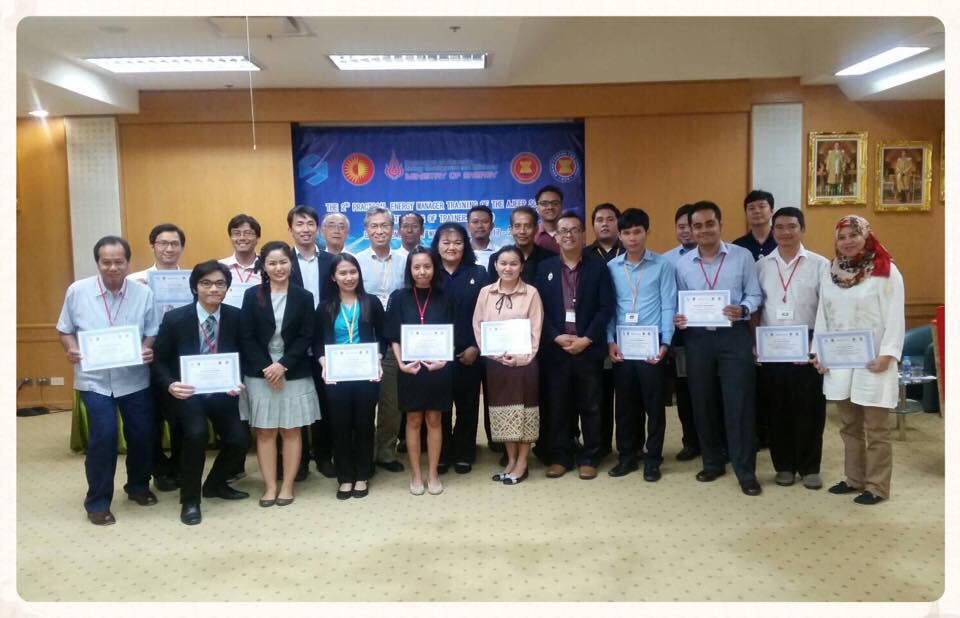Menu

The 2nd Practical Energy Manager Training under the ASEAN-Japan Energy Efficiency Partnership (AJEEP) Scheme 2 was successfully conducted on 7-11 August 2017 at the Practical Energy Manager Training Centre (PEMTC) in Khlong Luang District, Pathum Thani, Thailand. The training was co-organised by the ASEAN Centre for Energy (ACE) and Energy Conservation Center, Japan (ECCJ), in cooperation with the Department of Alternative Energy Development and Efficiency (DEDE), Thailand. This second training was participated by a total of sixteen (16) trainees from ASEAN Member States (AMS) including 2 ACE representatives.
Building on last year’s achievements, the training and certification programme is expected to be helpful in enhancing the quality and quantity of energy managers in the AMS. The objectives are: i) refinement of the training and certification system of energy managers in Indonesia, Malaysia, Thailand and Vietnam (Group A); and ii) establishment of the training and certification system of energy managers in Brunei Darussalam, Cambodia, Lao PDR, Myanmar, and the Philippines (Group B & C).
Mr. Somchai Stakulcharoen, the representative of the Director General of DEDE delivered an opening speech highlighting the importance of practical skills on energy management to achieve energy saving measures. Furthermore, he encouraged the implementation of energy efficiency and conservation (EE&C) in all sectors to address energy demand challenges and climate change issue by reducing dependency on fossil fuels. Also, he highlighted the training’s structure and further expected that learning outcomes would be able to contribute to the improvement of practical knowledge of ASEAN energy managers as well as strengthening the cooperation between ASEAN and Japan in the field of EE&C.
The 5-day training course consisted of various topics: i) learning of EE&C on pump, fan, compressed air, lighting, open burner, combustion furnace and steam trap; ii) learning of measurement procedures & data gathering methods; iii) learning of data analysis; iv) pre and post-training examination; and v) summary and report making. The training centre is also equipped with a mini plant to simulate application and methods of energy efficiency best practices in various equipment. The software equipment contains controlling procedure, measuring and adjustment that helped the trainees to fully understand the operational of EE.
During the last day of the training, the future work plan and preparatory steps were discussed to ensure the accomplishments of the programme as scheduled. There will be 2 upcoming activities to be conducted after the training; trial energy audit in respective Member State, and Energy Conservation Workshop under AJEEP (ECAP) 12 Workshop. Through the energy audit, the trainees are expected to be able to demonstrate their skills and knowledge in data analysis and make a comprehensive report on EE&C improvement in building and industry sectors. The report will be presented at the ECAP 14 Workshop which will be held in January 2018 in Tokyo, Japan. At the same time, the participants expressed their gratitude and appreciation to ACE, ECCJ and DEDEThailand for the excellent support and arrangement provided to the successful organisation of the training course. (RJPS. Photo credit: ACE)
